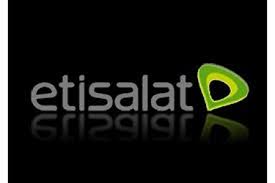An HMO is an acronym for a “Health Maintenance Organisation” in Nigeria. They are companies mandated solely to manage the provision of health care services through Health Care Facilities (Hospitals, Opticians, Dentists etc) Accredited by the Scheme. Basically, they are an intermediary between the hospital and companies seeking to provide healthcare for their employees and families of their employees.
How it works
A HMO has a list of Healthcare Facilities that provide healthcare services to its clients (companies). The HMO markets its services to companies seeking to provide healthcare for its employees. Once an agreement is reached, the company pays the HMO premium (just like in insurance). The premium paid will fetch the company a coverage for provision of healthcare service subject to conditions within a stipulated period (usually one year). For example, a company that has 10 staffs who have 10 other members as immediate family and wishes to buy Insurance for the staff and family will apply directly to a HMO. The HMO will offer the company a plan or a variety of plans. Lets assume the company prefers just one plan for their staff and family of the staff. If the HMO’s Plan is N40,000 in premium per person, then the company will pay the HMO N800,000 as premium.
What can the Premium Get me?
Well that depends on the type of policy you get. Usually there are two types. Capitation and one that is like a regular Insurance. A Capitation from my experience has the following characteristics;
- Premium is paid periodically for all the employees covered.
- The employees under coverage are usually limited to one or two (or as the case maybe) hospitals during the period of the coverage.
- They offer different classes of coverage each with its own unique benefits. For example a Basic Plan in one of the leading HMO’s in Nigeria cost about N17,000 per member. That plan has the following benefits coverage only
- Ambulance Service
- General Outpatient and in-house specialist consultation
- Admissions
- Accident and Emergencies
- Prescribes Medicines and Drugs
- Minor Surgeries and procedures
- X-rays, Laboratory & Diagnostic Test
However it excludes Primary Dental Care, Dental Surgeon Extraction, Maternity (Ante-Natal Care + Delivery and Immunization), Optical Care, Physiotherapy, Scans MRI Scans.
This off course is the least plan in their package. The Executive Plan (the highest) however covers all the above and those covered by the Basic Plan.
4. The Hospitals will attend to you provided it is the one that you choose and you will have to show them a card from the HMO.
5. The Hospitals are paid an upfront amount called “Capitation” by the HMO regardless of whether you use them or not. In return the hospital, charge the HMO a subsidized fee for drugs and services.
A major disadvantage of this option is that, because the hospitals get money upfront there is every likelihood that they offer substandard services to reduce their cost
The other method is an “Insurance” Option. This option has the following characteristics
1. You pay the HMO a premium periodically.
2. You are free to go to any hospital that is covered by the HMO. Meaning, unlike capitation where you get to choose one or two, you can choose an unlimited number of hospitals provided it is covered by the HMO.
3. Your premium can however only fetch you a limited amount of coverage. For example, a popular HMO that runs this service has a plan that cost N32,000 per person. This amount has a maximum coverage of N450,000 per person (7.11% premium).
4. The coverage also has limits that it will not cover. These are “General Exclusions” such as;
- All MRI, CT Scan, Mammogram
- Acute & Chronic Renal Dialysis
- Drug and Alcohol Abuse Rehabilitation
- Spinal Cord and Brain Injuries
- Diagnosis for infertility
- Management of Psychiatric Conditions
- Injuries arising from professional sports
Usually any other diagnosis that is not in the excluded list is under coverage.
5. Treatment excluded as above can be provided on a “fee for service basis”. Meaning you pay them a separate amount for that as premium.
6. Hospitals are paid on a per treatment basis. Meaning they only pay hospitals when diagnosis or treatment is performed on a patient under cover. As such they do not pay capitation.
A major disadvantage of this for companies is that some of the HMO’s may not be able to pay the hospital due to mismanagement of funds or lack of proper risk assessment. For example, to minimize risk, HMO who practice this method usually go for companies with a large staff strength. This gives them a large pool funds which can mitigate the risk of a large coverage. Just like in Insurance they do not expect every one the staff in the large pool to fall sick as the larger the staff the lesser the risk of medical expense.
However, risk arises if they fail to manage the funds they obtain. As such, they usually have good Insurance background and should invest the funds in good assets to ensure their risk is adequately mitigated. Without this, a company that is not managed probably, may not be able to service the medical bills adequately which in turn means the hospital will deny medical services for employees.
Which is best for my company?
Companies have different characteristics as such it may be difficult to recommend a particular type of coverage. Most times, people like to deal with one or two hospitals to ensure that their medical history is properly tracked and managed rather than change hospitals randomly. Large companies usually have the privilege of employing Heath Economics Experts who can determine a good package relative to the size of the company.
Irrespective of the HMO you use it is often times an effective way to manage cost and budget for payroll cost. For example they can set budget for medical cost which is mostly more than the premiums they pay for insurance. For example, your medical budget may be N1m per annum. You can get a HMO plan of N500k for your staff, saving you N500k. Some companies in this case write back the N500k to profit. Some others, use it to offset medical bills, where some or all of their staff exceed limit in the insurance scheme or require extra medicare in the fee for service scheme under the Insurance or Capitation Scheme. Either way, your medical cost is managed optimally.
Finally,
Companies with a staff strength of more than 5 are expected to run a health insurance scheme. From a financial point of view HMO’s are cheaper and take away the risk of having to provide healthcare for staffs that suddenly fall ill at a time when the company is short of cash. It also takes away distractions as your staff concentrate more on your business operations rather than having to manage medicare issues with hospitals.
Payroll cost is also reduced as they do not need to include medicals in salaries of staff. For example some companies pay their staff medicals of N100,000 annually as part of their salary. They pay this amount regardless of whether they fall sick or not. For a company of 50 staffs that is N5m. With a HMO such as illustrated above, they may just need to pay just N40k per staff or N2m for all of them. They can also track their yearly spend which can be useful in negotiating premiums with the HMO’s during renewal. Individuals can also use this scheme whether or not they have a company or not.
Government officials and Civil Servants are covered by a similar scheme managed by the NHIS (National Health Insurance Scheme). These are names and addresses of some HMO’s
This article first appeared on Nairametrics on March 27, 2012.















Broke my femur over a month ago and now by fire, by force i have to take this HMO thing seriously. Thanks for breaking it down like you always do. Cheers!
How can I as a counseling student work for HMO when am done next year
Please can’t an individual register for HMO?must it be only a company registering its employees?
Hi Mariam, you can register for a health insurance cover as an individual from any HMO.
What happens to the premium already paid to HMO if at the end of the year, the insured didn’t fall sick and go for treatment in the HMO hospital? The money becomes a waste or be or part be refunded? Then who benefits the refund?